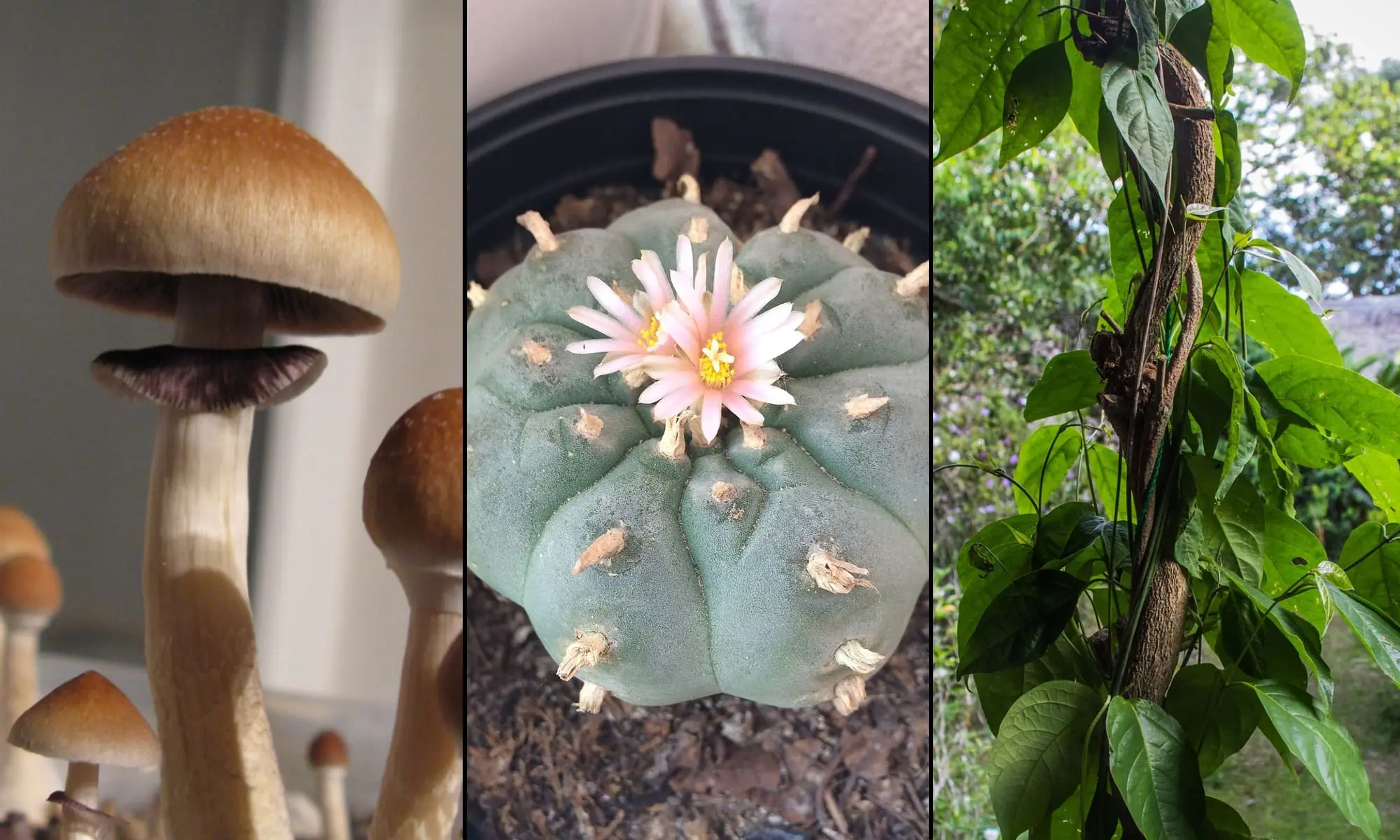Politics
Trump’s VA Secretary Is ‘Particularly Proud’ Of Psychedelic Research Aimed At Helping Veterans With PTSD

The head of the U.S. Department of Veterans Affairs (VA) says he’s “particularly proud” of the administration’s work to promote research into psychedelics therapy, citing studies into substances into MDMA that show promising early results in the treatment of mental health conditions that commonly afflict the veteran community.
In a clip from an interview that VA Secretary Doug Collins shared on X on Thursday, he said the department does “some of the best research work and very specific research work.”
He said that while there are reports about cancelled research contracts under the Trump administration, people shouldn’t read too far into that because VA-funded studies are often on a “rotating basis” and others are being funded “through other means or other assets.”
“We’re wanting to keep all of ours going,” Collins said. “One that I’m very particularly proud of is our research into the psychedelic issue.”
The secretary noted that he recently visited a VA facility in New York City “discussing MDMA therapies, which have been phenomenal in working with those with [post-traumatic stress disorder] and traumatic brain injuries—these other issues that we have.”
“I know there’s some others going on. There’s about 11 or 12 in the VA right now,” he said. “So that’s the things that I see: Research being able to provide not only help for veterans today, but also encouraging us to find not only things that will help veterans of the future—but also that will be helpful to the general public as well.”
“I believe that education is the magic bullet for all of us,” Collins said. “The more we know, the better off we are. And I want to see that continue to happen in the VA.”
Collins’s visit to the psychedelics research center came about a month after the VA secretary met with a military veteran who’s become an advocate for psilocybin access to discuss the therapeutic potential of psychedelic medicine for the veteran community.
Collins also briefly raised the issue in a Cabinet meeting with President Donald Trump in April.
The secretary also disclosed in April that he had an “eye-opening” talk with U.S. Department of Health and Human Services (HHS) Secretary Robert F. Kennedy Jr. about the therapeutic potential of psychedelic medicine. And Collins said he’s open to the idea of having the government provide vouchers to cover the costs of psychedelic therapy for veterans who receive services outside of VA as Congress considers pathways for access.
Kennedy said last month that his agency is “absolutely committed” to expanding research on the benefits of psychedelic therapy and, alongside of the head of the Food and Drug Administration (FDA), is aiming to provide legal access to such substances for military veterans “within 12 months.”
During a recent Senate committee hearing, Collins separately reiterated his commitment to exploring the efficacy of psychedelic therapy to address serious mental health conditions that commonly afflict military veterans.
Meanwhile in May, bipartisan congressional lawmakers asked the VA head to meet with them to discuss ways to provide access to psychedelic medicine for military veterans.
In a letter sent to Collins, Reps. Lou Correa (D-CA) and Jack Bergman (R-MI)—co-chairs of the Congressional Psychedelic Advancing Therapies (PATH) Caucus—said they were “encouraged by your recent remarks about the importance of pursuing research into psychedelic treatments and other alternative treatments to improve Veterans’ care.”
Correa and Bergman separately introduced a bill in April to provide $30 million in funding annually to establish psychedelics-focused “centers for excellence” at VA facilities, where veterans could receive novel treatment involving substances like psilocybin, MDMA and ibogaine.
Bergman has also expressed optimism about the prospects of advancing psychedelics reform under Trump, arguing that the administration’s efforts to cut spending and the federal workforce will give agencies “spines” to tackle such complex issues.
—
Marijuana Moment is tracking hundreds of cannabis, psychedelics and drug policy bills in state legislatures and Congress this year. Patreon supporters pledging at least $25/month get access to our interactive maps, charts and hearing calendar so they don’t miss any developments.
![]()
Learn more about our marijuana bill tracker and become a supporter on Patreon to get access.
—
In December, VA separately announced that it’s providing $1.5 million in funding to study the efficacy of MDMA-assisted therapy for veterans with PTSD and alcohol use disorder (AUD).
Last year, VA’s Yehuda also touted an initial study the agency funded that produced “stunning and robust results” from its first-ever clinical trial into MDMA therapy.
In January, former VA Under Secretary for Health Shereef Elnahal said that it was “very encouraging” that Trump’s pick to have Kennedy lead HHS has supported psychedelics reform. And he hoped to work with him on the issue if he stayed on for the next administration, but that didn’t pan out.
Photo elements courtesy of carlosemmaskype and Apollo.



